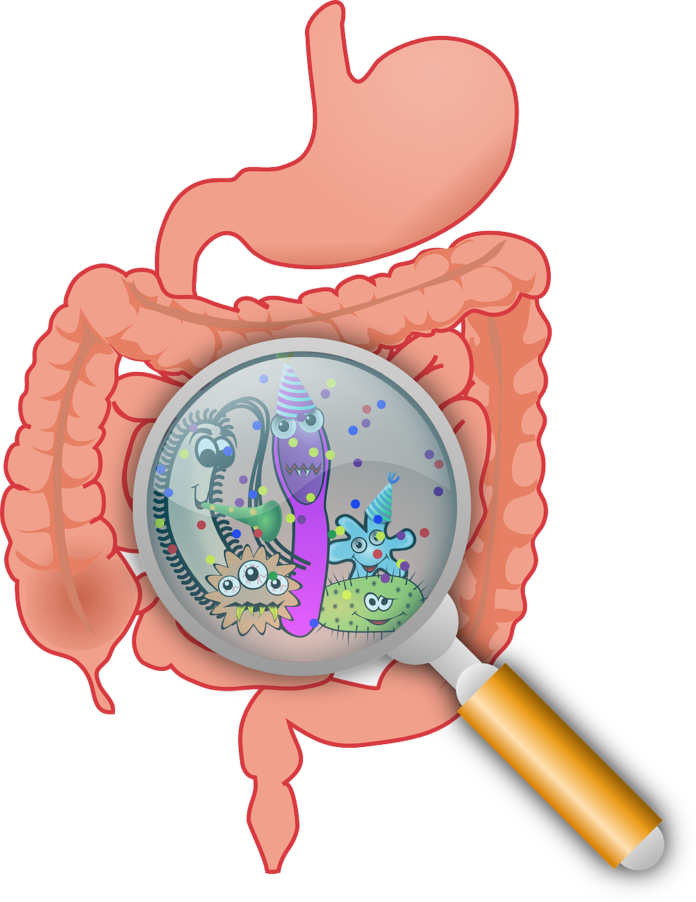Improve Your Gut Bacteria
Bacteria are hugely important for your health, however, certain types of bacteria in your intestines may contribute to many diseases. The food that you eat affects the types of bacteria that live inside you. A new born begins to develop microbiata at birth. During the first two years of life, an infant’s microbiota is continuously developing. Breastfeeding helps an infant develop a healthy microbiota, which may help protect against certain diseases in later life.
Eat a Diverse Range of Foods
There are many different bacteria in your gut which require different nutrients for growth. A diet consisting of different food types may assist with such nutrients for the good bacteria. Avoiding fats and sugars will go a long way to restoring gut health however, diets in certain rural regions are more diverse and rich in different plant sources. Eating a diverse diet rich in whole foods may lead to a diverse micro biota, which is beneficial for your health.
Vegetables, Legumes, Beans and Fruit
Fruits and vegetables are the best sources of nutrients for a healthy micro biota. High in fiber which may be digested by certain bacteria in your gut, and which stimulates their growth.
High-fiber foods may include:
Raspberries Blue berries, Artichokes , Green peas , Broccoli , Chickpeas, Lentils, Beans (kidney, pinto and white) and Whole grains.
Drink and Eat Fermented foods
The process of fermenting usually involves bacteria or yeasts converting the sugars in food to organic acids or alcohol. Examples of fermented foods include: Yogurt, Sauerkraut, Kefir, kombutcha or Tempeh. Certain yogurt products may also reduce the abundance of certain disease-causing bacteria in people with irritable bowel
syndrome. (IBS)
Eat Pre-biotic Foods
Pre-biotics are foods that may promote the growth of beneficial microbes in the gut. Fruits, vegetables and whole grains contain pre-biotics, however they may be found on their own. Research suggests that pre-biotics may reduce the risk factors for many diseases associated with obesity, including heart disease and diabetes.
Eat Whole Grains
Whole grains contain lots of fiber and non-digestible carbs Whole grains contain non-digestible carbs that can promote the growth of beneficial bacteria within the gut microbiota. These changes to the gut flora may improve certain aspects of metabolic health.
Eat a Plant-Based Diet
Diets containing animal-based foods promote the growth of different types of intestinal bacteria than that of plant-based diets. Research has shown that vegetarian diets may benefit the gut microbiota. This may be due to their higher fiber contents. Vegetarian rich diets may reduce levels of disease-causing bacteria in obese people, as well as reduced weight, and cholesterol levels. Vegetarian and vegan diets may improve the microbiota.
Eat and Drink Foods Rich in Polyphenols
Polyphenols are plant compounds that may have many health benefits, including reductions in blood pressure, inflammation, cholesterol levels and oxidative stress. Polyphenols may be digested in the intestine by gut bacteria. Good sources of polyphenols include: Cocoa and dark chocolate, Red wine, Grape skins, Green tea, Almonds, Onions, Blueberries and Broccoli.
Pro-biotic Supplements
Probiotics when correctly stored have live microorganisms, usually bacteria, which exert a specific health benefit when consumed. Probiotics may benefit your health by changing the overall composition of the microbiota and supporting your metabolism. A review found that probiotics have little effect on the gut microbiota composition of healthy people. However, there is some evidence to suggest that probiotics may improve the gut microbiota in certain diseases.
A review of 63 studies found mixed evidence regarding the efficacy of probiotics in altering the microbiota. However, their strongest effects appeared to be restoring the microbiota to a healthy state after being compromised. Some other studies have also shown that probiotics don’t have a big effect on the overall balance of bacteria in the intestines of healthy people.
The Health Message
Maintain healthy microbiota by eating a range of fresh whole foods, like fruits, veggies, legumes, beans and whole grains.















